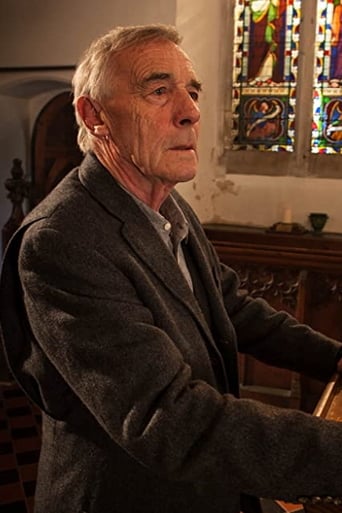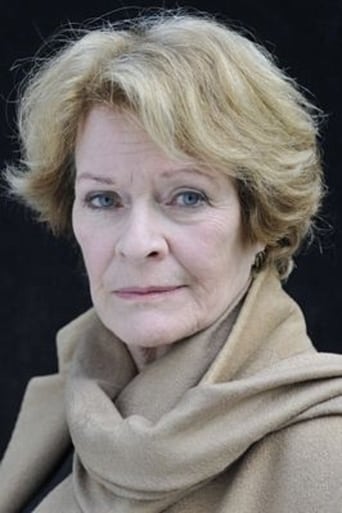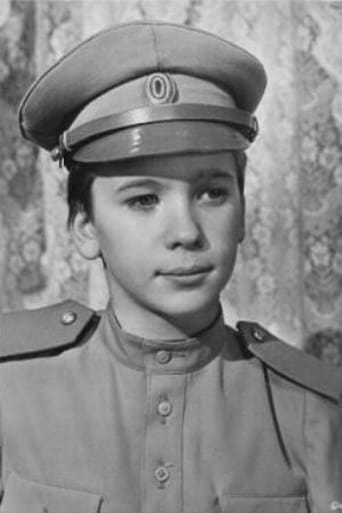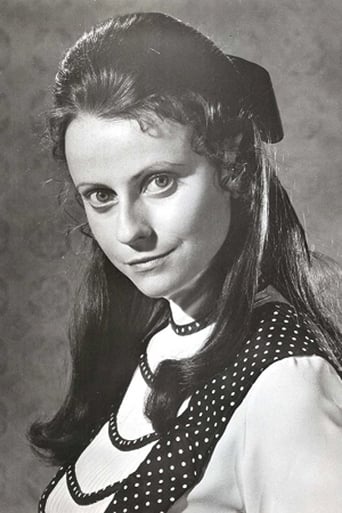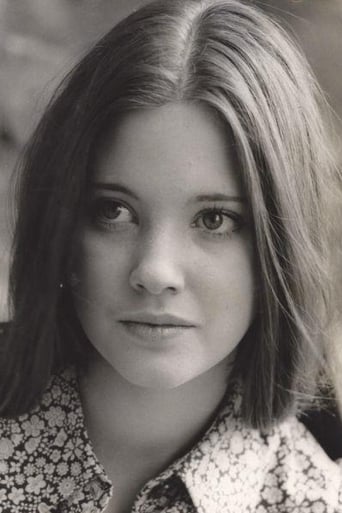Diagonaldi
Very well executed
Fluentiama
Perfect cast and a good story
Stevecorp
Don't listen to the negative reviews
Verity Robins
Great movie. Not sure what people expected but I found it highly entertaining.
midge56
The boy Alexei ruins the movie. His part is poorly written. Every 5 minutes, he is screaming about something so everyone comes running & indulges him. It repeatedly stops the flow of the film. He's a spoiled, self indulgent brat.On top of that, he deliberately does everything he can come up with to defy the rules of caution he must follow to prevent bleeding injury due to hemophilia. He goes out of his way to do dangerous things which will cause bleeding injury & does not care what problems it causes for everyone else. Then add the constant screaming every 5 minutes and you will be so sick of this kid after 30 minutes. It's a wonder he did not rupture his larynx. This was clearly poor scriptwriting & poor direction. Totally unnecessary.Then we have the Tsarina wife of Nicholas; Alix or Alexandra who is constantly feeling sorry for herself & always pampering the screaming, self indulgent son. She is so self consumed & lost in space she refuses to perform her duty & sign the paperwork to feed the Russian people. It was her pressuring which made her husband abandon his duties & run off to war leaving her in charge. But she is paralyzed with self pity, her pampered son's antics and the vile influence of Rasputin. This is actual history but it is still as irritating as is the poor script mishandling of her son.Finally, the weak, indecisive Tsar Nicholas who is so in love with his wife, he can't say no to her despite her terrible advice. He is a mentally immature little boy in a man's body. He does not feed his people or provide schools, medical, homes or shelter. He thinks they need only him & indulges in the peoples adoration and lives in autocratic opulence. They want gov't control. Then his troops started killing the strikers & marchers.The tsar sends his peasants out to war without ammunition, modern weapons, food, clothes, shelter, education or pay to die in senseless wars by the millions which he was cautioned not to start & no way to win. The Tsar can't do his job & his wife constantly whines with self pity & neither can be reasoned with.The peoples Duma gov't takes over but they listen to the US who offers $300 million to stay in WWI & continue to die. Lenin offers the peasants peace & power instead so the rabble become violent Bolsheviks who take over the new gov't & kill the Tsars entire family who didn't have the sense to flee Russia. They had a yacht & several properties outside of Russia as options. Killing the children was going overboard.The British were willing to give them sanctuary as they had done with many other leaders but George V, the grandfather of QE2 & cousin to the tsar & his wife, personally withdrew the parliaments offer to allow his cousins Nicholas & Alix and their children sanctuary in Britain. His cowardice got the Romanov's killed. His journals reflect his cold blooded attitude about their deaths & show no remorse for what he had done.You may have to watch it more than once because the slow pace allows your mind to wander.
GusF
One of the last films in the great tradition of the historical epics which dominated the 1950s and 1960s, it begins with the birth of Tsarevich Alexei, the apple of his parents' eye, on August 12, 1904 and ends with the murders of the entire Romanov family on July 17, 1918. While the film suffers from a few pacing problems, it is nevertheless a hugely entertaining and very well written film with often marvellous dialogue. Franklin J. Schaffner of "Planet of the Apes" (my sixth favourite film of all time) and "Patton" fame does a great job as the director.As the title characters, Michael Jayston and Janet Suzman are excellent, delivering subtle, understated performances. They have great chemistry. Throughout the film, you never doubt that they love each other. Nicholas II is depicted as a weak-willed, indecisive and not terribly bright man who loves his family but whose personality makes him utterly unsuited to his position. He fails to listen to the good advice of his prime ministers, most notably Count Witte, and often takes unwise courses of action at the behest of his strong willed wife. It is not until far too late, after he has already lost his throne, that he engages in some form of self-reflection and realises all of the mistakes that he made. My sympathy for him grew as the film progressed and he became an increasingly tragic figure. He may have been the Tsar but he always seemed to be someone's pawn rather than his own man. I think that, in the film at least, he became a better man after being forced to abdicate. Alexandra - who was hated because she was German - seems to be more intelligent than her husband, who is under her thumb and tells her as much at one point. However, her judgement is as bad as his or possibly even worse as she falls under the influence of Rasputin. She is blinded to his crimes and misdemeanours by her love for Alexei and the mystic's apparent ability to control his haemophilia. She is a less sympathetic character than Nicholas, in part because she says expressly at one point that, on reflection, she could think of anything that she had done wrong in the years leading up to 1917. I've no idea if this statement has any historical basis whatsoever but it worked well in the context of the film as she appears to be as blind to her own faults as she was to those of Rasputin. I sympathised with her most strongly when it came to Alexei's poor health as it was a terrible burden for any mother to bear.Laurence Olivier excels as Count Witte, the Cassandra of Russia whose consistently sensible advice is ignored by Nicholas and who, as in reality, warned that disaster would result from Russia's entry into World War I. I suppose that he was lucky that he did not live to see the Revolution. In his first major role, Tom Baker, cast at Olivier's suggestion, was perfect for the role of Rasputin, playing him with a wonderful sense of intensity. He comes across as a very dangerous, intelligent, manipulative and amoral man who was perhaps the worst possible choice for an adviser. The film has a very strong supporting cast overall: Timothy West, Ian Holm, John Wood, Roy Dotrice, Michael Redgrave (whose daughter Vanessa was considered for Alexandra), Julian Glover, Alan Webb and John McEnery as Alexander Kerensky, who died only a year and a half before the film was released. McEnery looks the image of him, incidentally.On the negative side, the film is too long at three hours and six minutes. It suffers from pacing problems for a full half four (from about 60 to 90 minutes into its long run). They could have probably cut at least half an hour of flab here and there without it making much difference. While the scenes in the first half featuring the Bolsheviks were necessary for later in the film, they weren't terribly good or interesting. The film hues fairly closely to history but takes a few liberties. For instance, Stalin and Lenin meet a few years too early and Stolypin is assassinated in 1913 rather than 1911. I thought that it was rather odd that, while several of the events surrounding the 1905 Revolution were depicted or discussed, there was no direct mention of the Revolution itself. The film jumps forward from 1905 to 1913 very suddenly and it was a bit distracting as, even given the film's length, it felt like it was leaving something out. The second half, beginning with the outbreak of World War I, is much stronger than the first and the film rollicks along at a great pace from then onwards. There is a great sense of foreboding in the second half as the story draws to its tragic conclusion. The film does a fantastic job of contrasting the opulence of the Winter Palace with both the poor living conditions of the Russian people and those of the Romanovs themselves after the Revolution.Overall, this is an excellent film which is neither as successful nor as well remembered as it deserves to be. Were it for its aforementioned problems, I would have certainly given it full marks.
ToughXArmy
Robin Massie wrote one of the more riveting books I have ever read, Nicholas and Alexandra based on the last Czar and Czarina of Russia,Director Franklin Schaffner who did such a brilliant job in directing 'Patton' fails here. The movie is pictorially magnificent and the interior set design impressive but at times dull when compared to the riveting book. Michael Jsyston and Janet Suzman able British actors do not have the charisma to play the Caar and Czarina The Empress was German born and since Russia was at War with Germany thought to be a spy Marlon Brando was offered Rasputin but turned down the role. Tom Baker does well but again as in the case of Jayston and Ms Suzman does not have the stature to play Rasputin. The central theme is that the Crown Prince had hemophilia and the mad monk Rasputin involved himself so unduly in the lives of the Russian Imperial family there were rumors that Rasputin and the German born Czarina were lovers! In Massie's book one chapter ends with the words " Day and Night" Rasputin and Alexandra brought down the Russian Empire" so hated was Rasputin that members of the Imperial Family plotted to kill Rasputin.Legendary Producer Sam Spiegel who produced classics at Columbia such as 'The Bridge On The River Kaw' and 'Lawrence of Arabia' 'On The Waterfront' among other classic films had a star roster of stars who previously starred in his films such as William Holden, Elizabeth Taylor, Peter O Toole, Katharine Hepburn, Marlon Brando etc in his films. Those are the kind of stars that should have been part of this film.I believe this was the last film Sam Spiegel made at Columbia ending a legendary relationship between studio and film maker that won Oscars for The Bridge On The River Kwai and a true masterpiece Lawrence of Arabia.
Neil Doyle
This lavish version of NICHOLAS AND ALEXANDRA will especially appeal to anyone who is fascinated by their legendary story and the bitter fate which awaited the family of Nicholas Romanov. One of his daughters was Anastasia. Her story, too, has been told in films and books.JANET SUZMAN is excellent as the woman who turns for comfort and hope to a madman, Rasputin, while her ineffective husband is unable to convince her that he is a charlatan. MICHAEL JAYSTON is effective as Nicholas, inhabiting the role so completely that you feel he is the man himself. TOM BAKER, who bears a striking resemblance to the real Rasputin, is also up to the demands of his role.There's a vast canvas of historical background filmed in splendid Technicolor with obviously no expense spared in all the costuming and production design details. The only real drawback is a lack of pacing in several key dramatic scenes, especially toward the end when the family's execution turns into an endless wait for the assassins to enter the room. Many scenes could have been more tightly edited to reduce the running time of over three hours.The supporting cast includes famous names like LAURENCE OLIVIER and MICHAEL REDGRAVE in what amount to bit roles. The daughters have little to do but the hemophiliac son, Alexis, is played with great sensitivity by RODERIC NOBLE.The realization that she is responsible for carrying the genes that gave her son his condition, is what torments Alexandra and leads to her unwise decision to take counsel from Rasputin.Dramatically, the film suffers from the slow pacing--but the story itself is so compelling that it makes up for this deficiency by providing scenes of epic grandeur and stunning cinematography.It fully deserved its Oscars for Best Art Direction and Costume Design. It was nominated for several other Oscars but Janet Suzman lost to Jane Fonda of KLUTE and the Best Picture award went to THE FRENCH CONNECTION.



